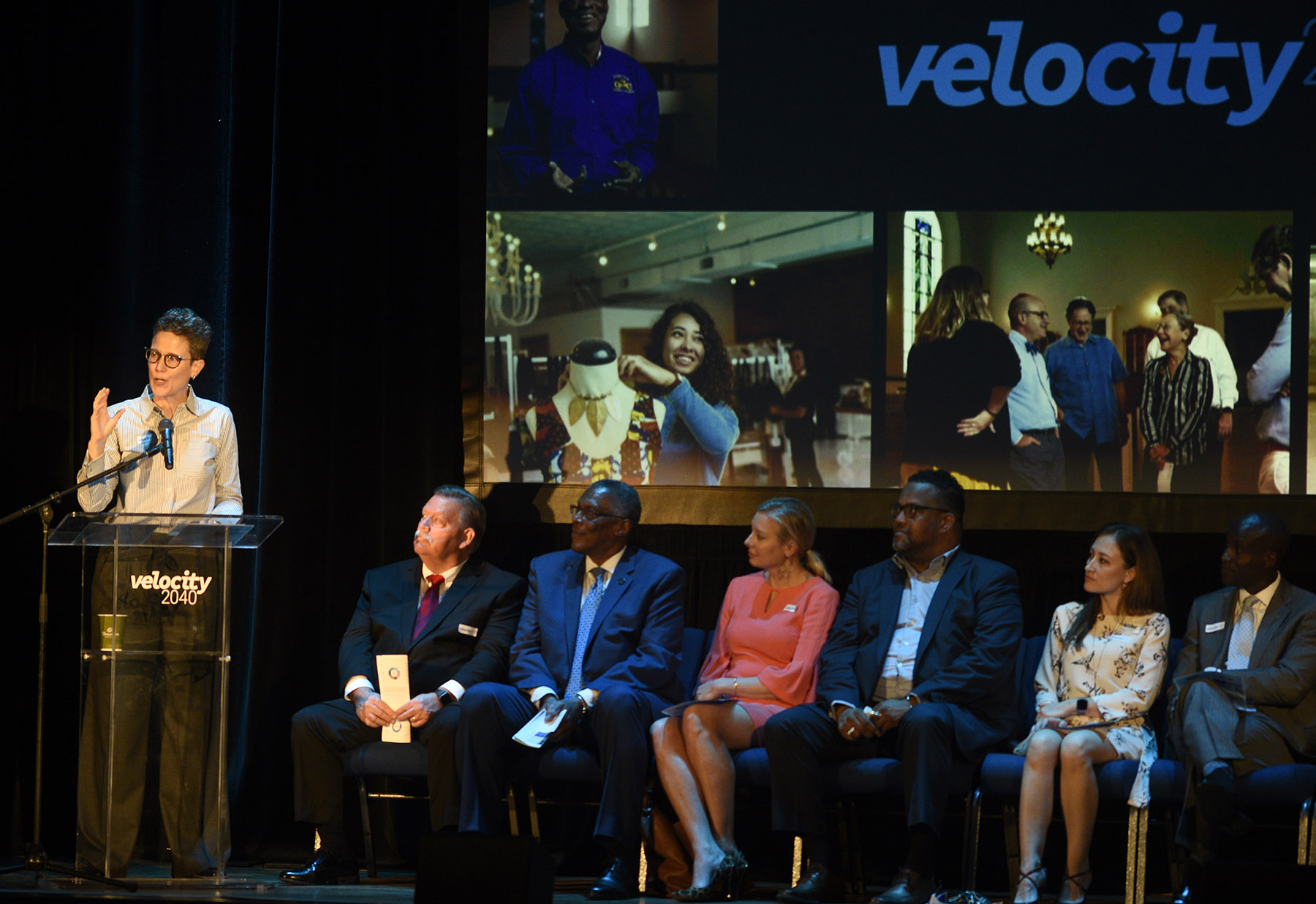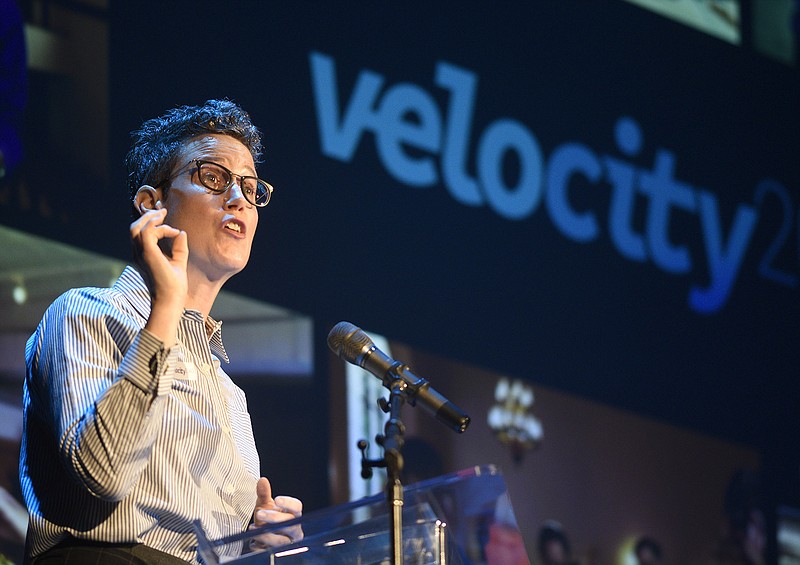 Futurist Rebecca Ryan discusses the possible benefits if the goals of Velocity 2040 are realized. The Chattanooga Chamber of Commerce held a news conference at Memorial Auditorium's Walker Theatre to detail highlights and results of the Velocity 2040 study on February 7, 2019. Velocity 2040 is the new countywide planning process.
Futurist Rebecca Ryan discusses the possible benefits if the goals of Velocity 2040 are realized. The Chattanooga Chamber of Commerce held a news conference at Memorial Auditorium's Walker Theatre to detail highlights and results of the Velocity 2040 study on February 7, 2019. Velocity 2040 is the new countywide planning process. Find out more
You can get involved or find out more at www.velocity2040.com
For Hamilton County to be successful over the next two decades, students are going to have to learn in new ways, leadership will need to be more diverse and collaborative, and local residents shouldn't need a car to get around town by 2040.
Those are among the goals and challenges identified by one of the most comprehensive community planning initiatives in a generation in Chattanooga.
From among more than 5,000 people involved in discussions, survey responses and brainstorming sessions over the past eight months, a new initiative known as Velocity 2040 identified five key goals for Chattanooga's future. At a community gathering of several hundred leaders in the Walker Theatre at Memorial Auditorium, the top challenges unveiled Thursday focused on improving education, jobs and transit and leaders said addressing those needs will require more diverse leaders who cooperate and work more with one another.
Watch the Velocity 2040 presentation
https://www.facebook.com/CHAchamber/videos/1039541396232501/
"We continue to make impressive rankings here in Chattanooga, but we can't rest on our laurels," said Christy Gillenwater, president of the Chattanooga Area Chamber of Commerce, which organized Thursday's gathering. "As competition for people, jobs and quality of life intensifies in cities around the world, we need to intensify our efforts."
Rebecca Ryan, a futurist and consultant for Velocity 2040, said changing technology, demographics and markets will require new approaches to education and work and Chattanooga will need the skills of all individuals to achieve its potential.
"You can't look at any measurement of this community and not realize that it is changing and our leaders need to reflect that," Ryan said. "When I come back in 2040, the leadership of this community ought to look like the United Nations, because talent doesn't know race or gender and leadership has no sexual orientation. Talent comes from all people."
To build a more diverse and cooperative leadership approach in Chattanooga, Ryan said, "some healing of the brokenness" felt by many who have felt left out of community decisions and economic opportunities will be needed. A study by Avalanche Consulting for the Velocity 2040 initiative found that the median income of black households in Hamilton County are only half that for white households and whites and males still disproportionately control most business boards and top jobs in the county.
"What we're trying to do is to make sure that every single person in this community can get his or her foot on at least one rung of the economic ladder," Ryan said.
Entrepreneurship and transit will be key to expanding opportunities, leaders said.
"What helps some of us helps all of of us," said Chris Berryman, director of marketing and development at Signal Centers, which works with many Chattanoogans needing wheelchairs or other special transit help.
Expanding opportunities and leadership also will require new and improved education programs that adapt to future job skill demands and use technologies, online training and year-round education to improve student achievement, Ryan said.
Hamilton County Mayor Jim Coppinger said education is the top priority of county government and Hamilton County Schools Superintendent Bryan Johnson stressed the students need more than just a diploma.
"We want our students to graduate with real opportunity and be able to plug into their interests and desires," said Johnson, one of the steering committee members for Velocity 2040.
Another leader of the initiative, Chattanooga Airport Authority President Terry Hart, said training will be needed for new jobs since the Avalanche study showed more than a fourth of the existing jobs in Chattanooga are vulnerable to automation or market changes.
"That's going to cause a lot of things to change and I think that we need to be prepared for that as we move forward over the next 20 years," he said.
During a brainstorming session Thursday, some initial ideas were proposed to begin addressing the new goals, including free public transit programs for all Hamilton County students and interactive programs to bring more people of different races together.
Gillenwater said the steering committee will look for initiatives to engage more people and find ways to meet the top goals. For its part, the Chattanooga Chamber is planning to develop its five-year strategic plan by April - billed as "Chattanooga Climbs, Advancing Economic Development and Talent Initiatives."
Contact staff writer Dave Flessner at dflessner@timesfreepress.com or at 423-757-6340.
